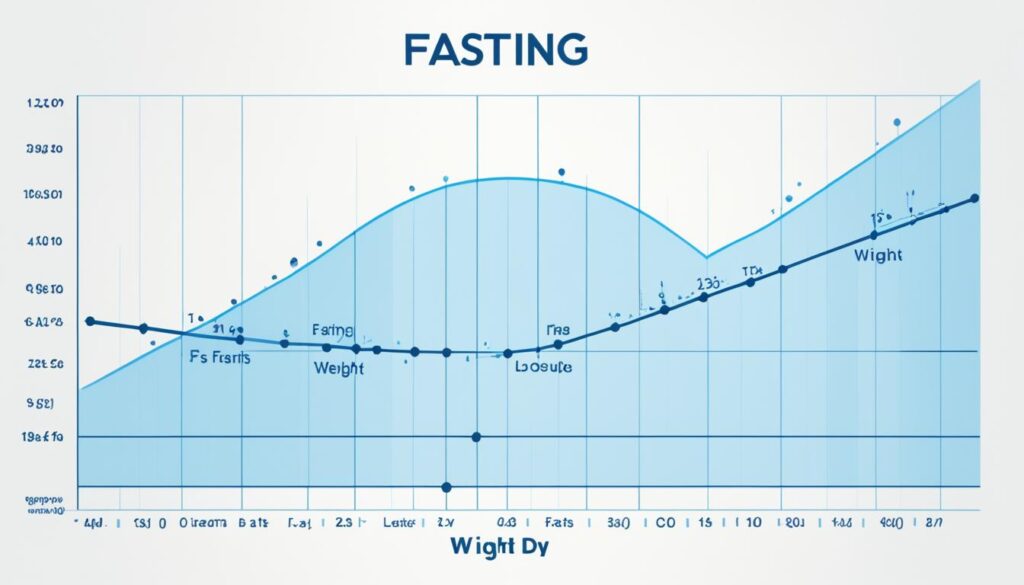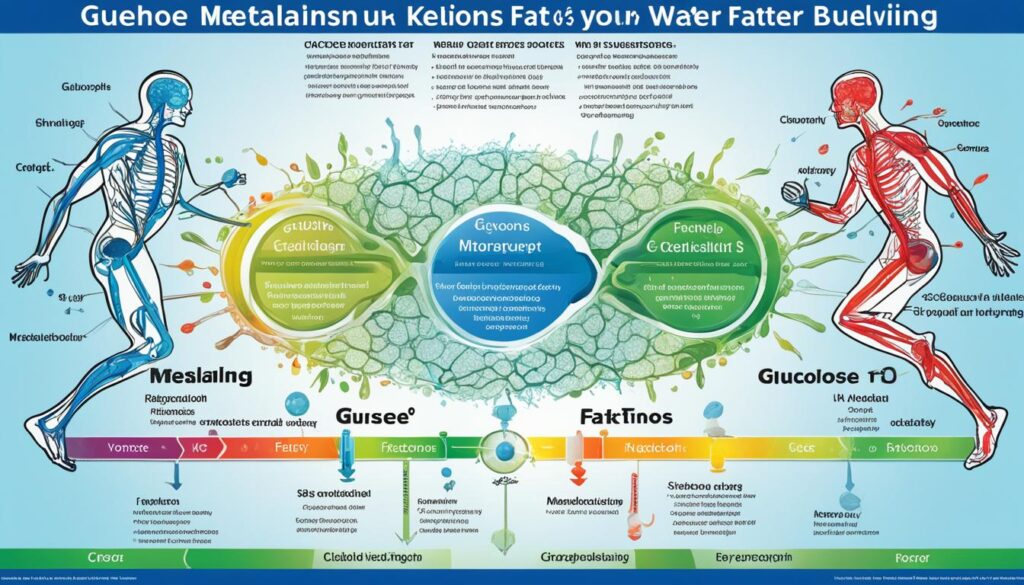Thinking about a 10-day water fast for quick weight loss? It also promises detox results. Many view it as a big step towards a healthier lifestyle. But, it’s essential to look closely at water fasting. While some share water fasting results that meet their health goals, experts like Krista Varady from the University of Illinois Chicago question its long-term success. They also worry about possible negative effects on the body.
Before jumping into a water fast to lose weight, know the pros and cons. It’s crucial to learn, seek advice from experts, and get medical help. This is especially true for long fasts, like 10 days.
Key Takeaways
- 10-day water fasting can lead to immediate weight loss.
- Long-term sustainability of water fasting weight loss remains uncertain.
- Medical supervision is advised to prevent potential health issues.
- Lean muscle may be lost in addition to fat during a water fast.
- A strategic approach to fasting can encourage a healthier lifestyle.
Understanding the 10-Day Water Fast
Fasting has been a part of human history and is known for its health benefits. Today, people are turning to water fasting to improve their health. This section looks into the 10-day water fast, its history, and the changes it brings to the body.
Historical and Modern-Day Context
Through the ages, the practice of fasting has evolved to meet various goals. Recently, the 10-day water fast has gained popularity for its benefits of water fasting. It combines ancient traditions with modern health goals.
Defining a Water Only Fast
A water only fast means no calories, no food, just water. Guides on how to do water fasting recommend drinking only water for up to 72 hours. But a 10-day fast requires dedication, highlighting the water fasting for health benefits debate.
Expected Physical Responses
Starting a water fast switches your body’s energy source to ketosis, leading to fat burning. The 10 day water fast benefits can lead to a 9.8% weight loss. This weight loss begins between the third and sixth day of fasting.
| Day Range | Body’s Primary Energy Source | Expected Weight Loss | Ketosis Initiation |
|---|---|---|---|
| 1-2 | Glucose | Minimal | No |
| 3-6 | Transitioning to Ketones | Moderate | Beginning |
| 7-10 | Ketones (Fat Burning) | Notable (Up to 9.8%) | Yes – Fully Active |
Trying a 10-day fast can have lasting effects on your health. Results vary by person, based on their health, how well they stick to the fast, and their choices afterwards.
Water Fasting Weight Loss 10 Days – What Research Shows
Many people look for ways to lose weight and get healthy. Weight loss with water fasting is one method that’s caught attention. Recent research gives us a clearer view on water fasting for detox and weight loss. Studies show that a 10-day water fast can lead to significant weight loss. This finding comes from various clinical studies.

Studies show that water fasting helps people lose fat and experience physical changes. These include a faster heart rate and lower blood pressure. The fat loss was consistent among those who tried water fasts, lasting from one week to 20 days.
For many, the idea of losing a lot of weight is very tempting. But water fasting offers more than just weight loss. It includes benefits for detoxification too. This helps make fasting a well-rounded health strategy.
The Health Impact Beyond Weight Loss
Water fasting for detox and weight loss is popular among wellness lovers. However, this practice affects more than just weight. It touches different parts of our biology. These effects give us a full picture of water fasting, including metabolic changes and muscle concerns.
Short-Term Metabolic Changes
The metabolism changes a lot during water fasting, but this is mostly temporary. When starting a water fast, the body enters ketosis. This means it burns fat for energy when there’s no glucose. These changes show how the body can adjust and cleanse itself.
Transitory Improvements in Health Markers
Some health benefits like better blood pressure and cholesterol levels don’t last long. They often go back to where they were when normal eating starts again. This means the improvements from water fasting are temporary without ongoing diet changes.

Muscle Mass Considerations
When it comes to water fasting, we need to think about muscle mass too. Losing fat is good, but losing muscle isn’t. Muscles are key for our health and metabolism. Losing muscle could lessen the benefits of water fasting we want.
Best Practices for Safe Water Fasting
Starting a water fast needs care and following best practices for water fasting. These steps are crucial for safe water fasting. They should not be ignored.
Medical Supervision During Water Fasting is key. Before starting a fast, talk to a healthcare provider, especially if it’s longer than five days. They can give advice based on your health and what medicines you take, and watch your progress.
Slowly starting to eat again after fasting is very important. It helps avoid refeeding syndrome, a serious risk. This careful approach might seem slow but it’s necessary for staying healthy.
Also, having safety protocols in place is a must. Know the possible side effects and what to do if something goes wrong. These steps help prevent problems during the fast.
- Mandatory pre-fast medical check-up
- Continuous monitoring of vitals and well-being during the fast
- Structured plan for refeeding
- Immediate cessation of the fast and medical intervention if severe side effects occur
Finally, being well prepared and watched over is very important for water fasting. By sticking closely to these best practices for water fasting and learning how to do water fasting safely, you can fast with more confidence and safety. This way, health stays first, before quick results.
Comparing Water Fasting With Other Fasting Protocols
Fasting is a popular way to get healthier. But it’s important to look at how water fasting stacks up against easier methods. Things like intermittent fasting and cutting calories are less intense. They offer a simpler path to lasting health benefits.
Intermittent Fasting and Caloric Reduction
Intermittent fasting is quite flexible and fits easily into daily living. It focuses on when you eat, not how much you eat. This method alternates between eating and fasting within specific hours. It helps with weight loss without the need for constant fasting. Caloric restriction, on the other hand, cuts daily calories but keeps meals nutritious. Both are popular for their health benefits and boost in metabolism, making fasting a balanced choice.
Pros and Cons of Prolonged Fast vs. Intermittent Fasting
Comparing prolonged water fasting and intermittent fasting shows both sides. A long water fast can quickly reduce weight and detox your body. But, it’s tough and can lead to muscle loss. Intermittent fasting is easier, safer, and supports ongoing health. Many experts recommend it for its balanced approach.
Adopting a Sustainable Approach for Health Benefits
The fasting debate highlights the need for longevity and wellness. Instead of drastic measures, a systematic plan like time-restricted eating fits better with everyday life. It shows the fasting benefits while being easy to follow. The goal is to find a fasting method that improves health over time and suits personal habits. Trying different fasting methods can lead to a balanced and healthy lifestyle.




